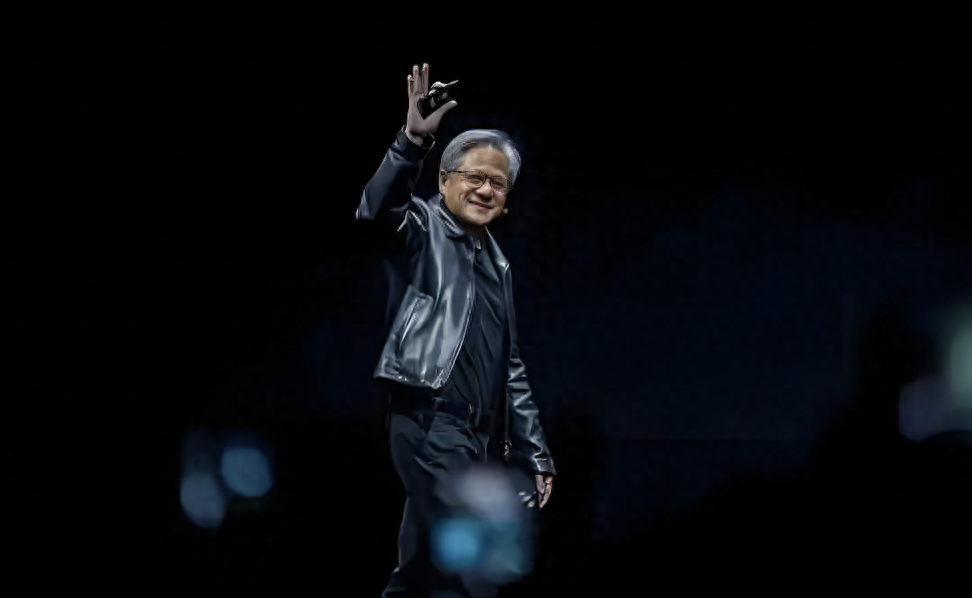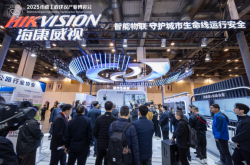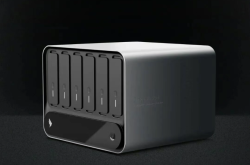AI agents can complete 50% of work for 100% of people, says Jen-Hsun Huang, sparking a change in work patterns
![]() 11/14 2024
11/14 2024
![]() 593
593

At the AI Summit held in Tokyo, Jen-Hsun Huang, founder and CEO of NVIDIA, delivered a thought-provoking speech. He put forward a forward-looking view: artificial intelligence (AI) agents will complete 50% of work for 100% of people.
Huang pointed out in his speech that with the continuous development and maturation of AI technology, AI agents will possess the abilities to understand, reason, plan, and take action. These advanced digital agents can handle complex multi-step tasks, significantly enhancing operational efficiency by converting data into actionable insights. He emphasized that AI agents will not replace human work but help humans complete tasks more efficiently, thus greatly enhancing human productivity.
Huang further noted that the widespread application of AI agents will trigger a profound change in work patterns. In the future, AI agents will complete 50% of work for 100% of people, meaning that people can devote more time and energy to tasks requiring human wisdom and creativity, while tedious and repetitive tasks will be handled by AI agents. This change will drive productivity transformation across various industries and promote the sustained and healthy development of the global economy.
In his speech, Huang also emphasized the importance of AI infrastructure in driving global change. He believes that future AI technology can be divided into two categories: digital AI (such as AI agents) and physical AI (such as robots). Japan has a strong foundation in both areas and can leverage its language, cultural, and data advantages to drive this transformation. Therefore, he called on all countries, industries, and companies to actively participate in the new industrial revolution driven by AI and jointly promote the transformation and upgrading of the global economy.
In addition, Huang introduced NVIDIA's latest progress and cooperation plans in the field of AI. He said that NVIDIA will work with partners such as SoftBank to build Japan's most powerful AI supercomputer to support sovereign AI projects, including large language models. This initiative will further enhance Japan's innovation and competitiveness in the field of AI.
SoftBank secures the first batch of NVIDIA's new chips
Furthermore, NVIDIA announced a series of significant collaborations with SoftBank Group, with SoftBank successfully obtaining the first batch of chips based on NVIDIA's new Blackwell design. This partnership marks another major breakthrough for SoftBank in AI and 5G technology and heralds a new era of change for the global AI and 5G networks.
It is reported that SoftBank Group will be the first supercomputer customer of NVIDIA based on the new Blackwell design. Jen-Hsun Huang, founder and CEO of NVIDIA, stated at the summit that SoftBank is the first company to obtain its new Blackwell chip design, which it is integrating into an AI supercomputer under development to create its own generative AI models. This initiative will significantly enhance SoftBank's innovation and competitiveness in the field of AI.
Meanwhile, SoftBank's telecommunications division plans to build Japan's most powerful AI supercomputer to support a wide range of local services. This computer will be based on NVIDIA's DGX B200 product, which combines computer processors with so-called AI accelerator chips to provide exceptional computing performance and energy efficiency. Subsequently, the two parties will also launch a more advanced version, Grace Blackwell, to meet more complex and diverse computing needs.
Beyond supercomputer collaboration, NVIDIA and SoftBank also announced the pilot launch of the world's first AI and 5G telecommunications network. This network, known as AI-RAN, can simultaneously run AI and 5G workloads.
Huang stated that the new AI-RAN will be better suited for remote robotics, autonomous vehicle support, and powering other services while consuming less power. The introduction of this technology will significantly promote the popularity of remote work and automated services, providing strong support for future smart cities and intelligent transportation systems.
The collaboration between NVIDIA and SoftBank will not only accelerate Japan's sovereign AI initiatives, further consolidating NVIDIA's global technological leadership, but also unlock billions of dollars in AI revenue opportunities for global telecommunications providers. This partnership not only showcases NVIDIA's leading position in AI and 5G technology but also embodies SoftBank's determination and strength in driving technological innovation and industrial upgrading.
Artificial intelligence becomes a strategic technology
In recent years, artificial intelligence (AI) has emerged as a driving force behind a new wave of technological and industrial revolutions, exhibiting strong momentum and vast potential. From smart manufacturing to smart cities, from healthcare to financial services, AI applications are ubiquitous, exerting profound and widespread influence.
According to various reports, the global AI market size reached 2.3901 trillion yuan in 2022, with a year-on-year growth of 26.7%, and is expected to grow to approximately 3.5137 trillion yuan by 2024. In the Chinese market, AI has developed particularly rapidly, with the AI market size expected to exceed 600 billion yuan or more by 2024, demonstrating a trend of rapid growth.
In terms of technological innovation, the field of AI has continued to make breakthroughs. The technological maturity and innovation capabilities in areas such as deep learning, natural language processing, and computer vision have continuously improved. Generative AI (GenAI) technology has made significant progress, enabling the automatic generation of text, images, audio, and other content, demonstrating huge potential in content creation, customer service, language processing, and other fields. At the same time, trends such as the rise of multimodal generative AI, the integration of deep learning and reinforcement learning, and the continuous iteration of general large models will further drive the development of AI technology.
At the thematic session of the 2024 World Science and Technology Forum, academicians and experts introduced the top ten frontier technology trends in AI, including common technologies such as small data and high-quality data, human-machine alignment, AI usage boundaries and ethical oversight models, and interpretable models; large-scale pre-trained models such as the scaling law, full-modal large models, and AI-driven scientific research; embodied intelligence such as embodied cerebellar models and embodied AI systems; and generative AI such as world simulators. The development of these frontier technologies will further expand the application scenarios of AI and enhance its performance and efficiency.
In terms of policy support, governments around the world have introduced relevant policies to promote the development of the AI industry. The Chinese government attaches great importance to the development of AI technology and has issued a series of policy documents, such as the "Development Plan for a New Generation of Artificial Intelligence" and the "Guiding Opinions on Promoting the Deep Integration of Artificial Intelligence and the Real Economy," providing a favorable policy environment for the development of AI technology. These policies not only provide direction for the AI industry but also offer more market opportunities and development space for enterprises.
In the future, AI will continue to play a crucial role in various industries, driving industrial transformation, upgrading, and innovation. In fields such as smart manufacturing, smart healthcare, and autonomous driving, AI will play an important role in improving production efficiency, reducing costs, enhancing user experience, or solving complex problems. Meanwhile, with continuous technological advancements and the expansion of application scenarios, the AI industry will also face more opportunities and challenges.




